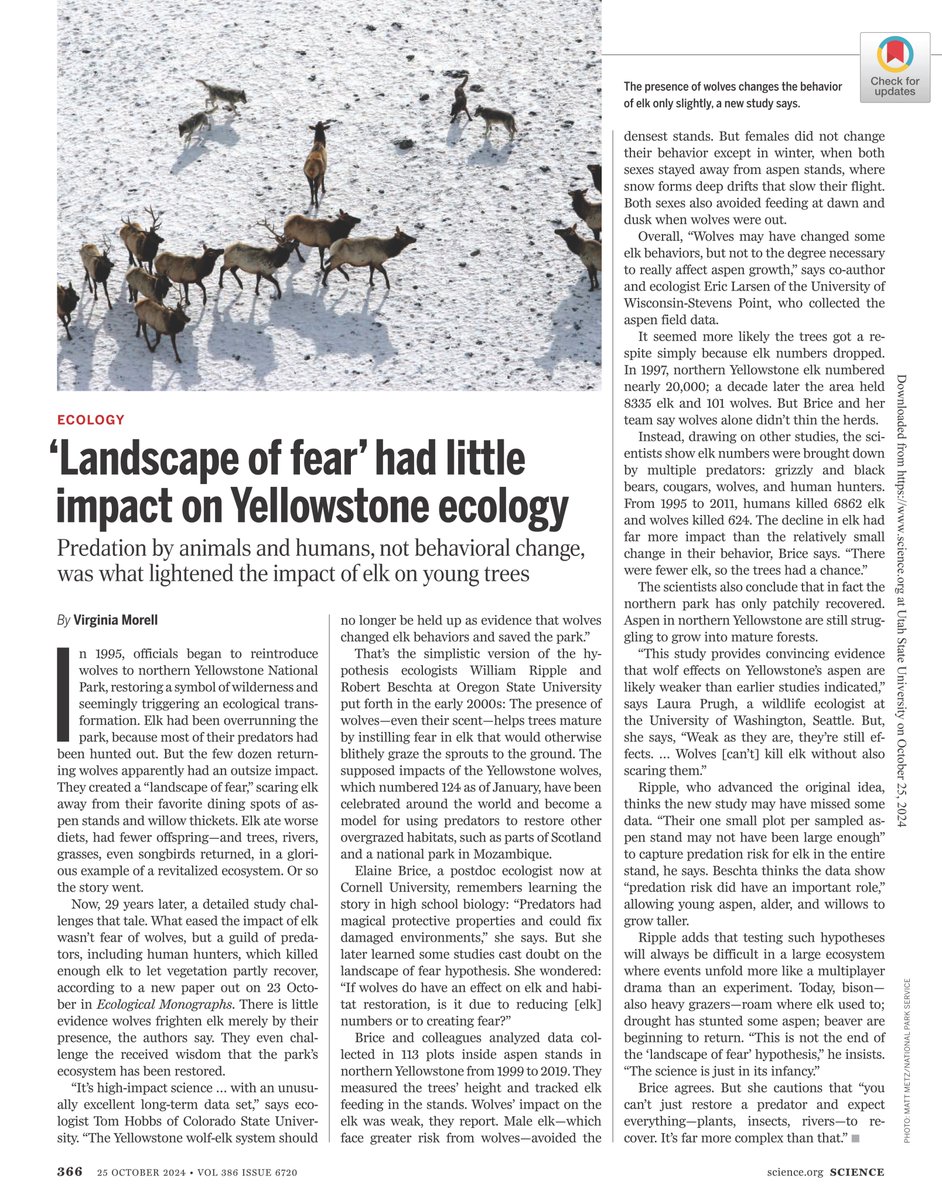
Gates Dupont
@gatesdupont
PhD Candidate in Ecology & Evolutionary Biology with @Andy2Dobson at @Princeton • Community ecology of emerging pathogens
ID: 766089069650739200
http://www.GatesDupont.com 18-08-2016 01:47:22
3,3K Tweet
1,1K Followers
1,1K Following




cool paper alert you're a songbird that breeds in North America. Do you winter in an area that has similar climate to your breeding grounds? or in an area that is easy to get to? Marius Somveille and colleagues provide evidence for the latter onlinelibrary.wiley.com/doi/10.1111/el…

Our new paper just out: nature.com/articles/s4155… urging caution in overstating potential benefits of animals for carbon sequestration. While benefits exist, we must recognise the uncertainties, limitations of scale and ethical implications Lead by Ethan Duvall and @EcologyRoo

Are there universal laws driving complex systems dynamics across scales? What kind of general theory connects fluctuations in microbiomes, rainforests or economic and urban systems? Check this PNASNews paper by ashish george & James O'Dwyer Santa Fe Institute pnas.org/doi/abs/10.107…


World’s smallest falcon (22-25 g) and world’s largest hummingbird (~20-26 g). Amazing to see how form matches function. Smithsonian NMNH




New bird🐦⬛research🚨! So excited to share our new study in NatureEcoEvo! In it, we examine shifts in the breeding latitude, elevation, and phenology of North American #birds in relation to #climatechange! The last paper of my UCLA EEB postdoc with Morgan Tingley *find me on BlueSky*🥲 A🧵...


New in @sciencemagazine, we show that spatial cognitive ability is associated with longevity in food-caching Mountain Chickadees. And Vladimir Pravosudov’s photo was selected for the cover! #ScienceResearch. science.org/doi/10.1126/sc… 1/n




If you missed his killer talk at American Ornithological Society #AOS24, Ben Tonelli from the Morgan Tingley *find me on BlueSky* lab just brought out his paper in Ecology Letters testing the drivers of migratory #phenology for 222 Nearctic #bird species! Temperature and snowpack are most critical! onlinelibrary.wiley.com/doi/10.1111/el…





Africa’s low rates of Zika virus outbreaks may be due to a surprising factor: the genetic makeup of local mosquito populations, according to a new study led by High Meadows Environmental Institute's Dr. Jamie Caldwell. bit.ly/3VAiNok







